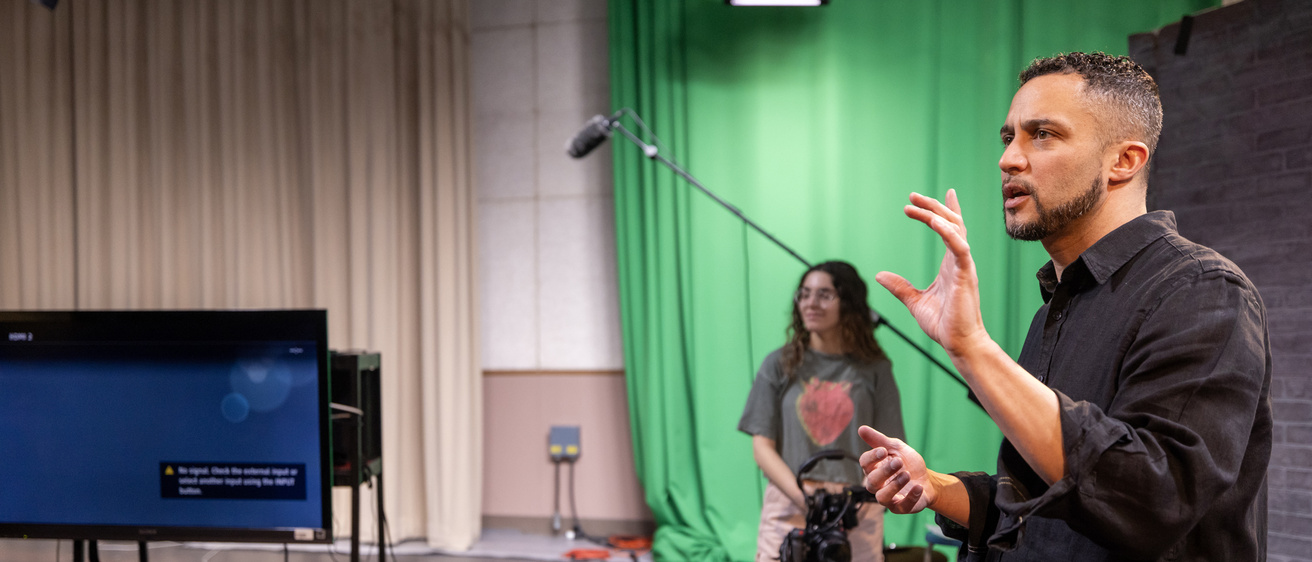Emphasizing film and related media in historical and cultural contexts
Graduate programs in Cinematic Arts are grouped under two program headings: film studies (MA and PhD) and film and video production (MFA). While each program offers a variety of courses distinctive to each degree, many courses cross program and discipline boundaries, and all of our faculty have interests that span a variety of fields. Examination committees, admissions committees, and departmental committees mix and match interests and expertise so that faculty and students both are maximally engaged.
Explore graduate programs
MA in Film Studies
The Master of Arts in Film Studies serves to give students substantial training in film analysis, history, and theory, and to afford students an opportunity to learn about various film-related disciplines in order to make an informed career choice.
MFA in Film and Video Production
With a focus on expanded documentary, experimental, hybrid, and narrative media forms, the Master of Fine Arts in Film and Video Production combines creative and scholarly coursework with the aim of producing a body of innovative, artistic work in film, digital media, multimedia installation, and/or animation.
PhD in Film Studies
The program's coursework is broadly concentrated in film history and film theory, with specific courses offered on a wide range of topics. With the regular consultation and guidance of a faculty advisor and committee, students formulate and pursue a plan of study during their first year in the program.
Why cinematic arts at Iowa?
Graduate students in cinematic arts work closely with award-winning faculty whose expertise spans film production, screenwriting, film theory, history, and criticism, as well as emerging media and interdisciplinary storytelling. Our programs foster the creative, analytical, and technical skills essential for careers in filmmaking, screenwriting, media criticism, academia, arts administration, and the broader media industry.
With strong connections to arts organizations, festivals, and interdisciplinary initiatives across campus, our graduate programs prepare students to become leaders in their fields—artists, scholars, and storytellers who contribute to a global cinematic culture while shaping new ways of seeing, thinking, and engaging with the moving image.
